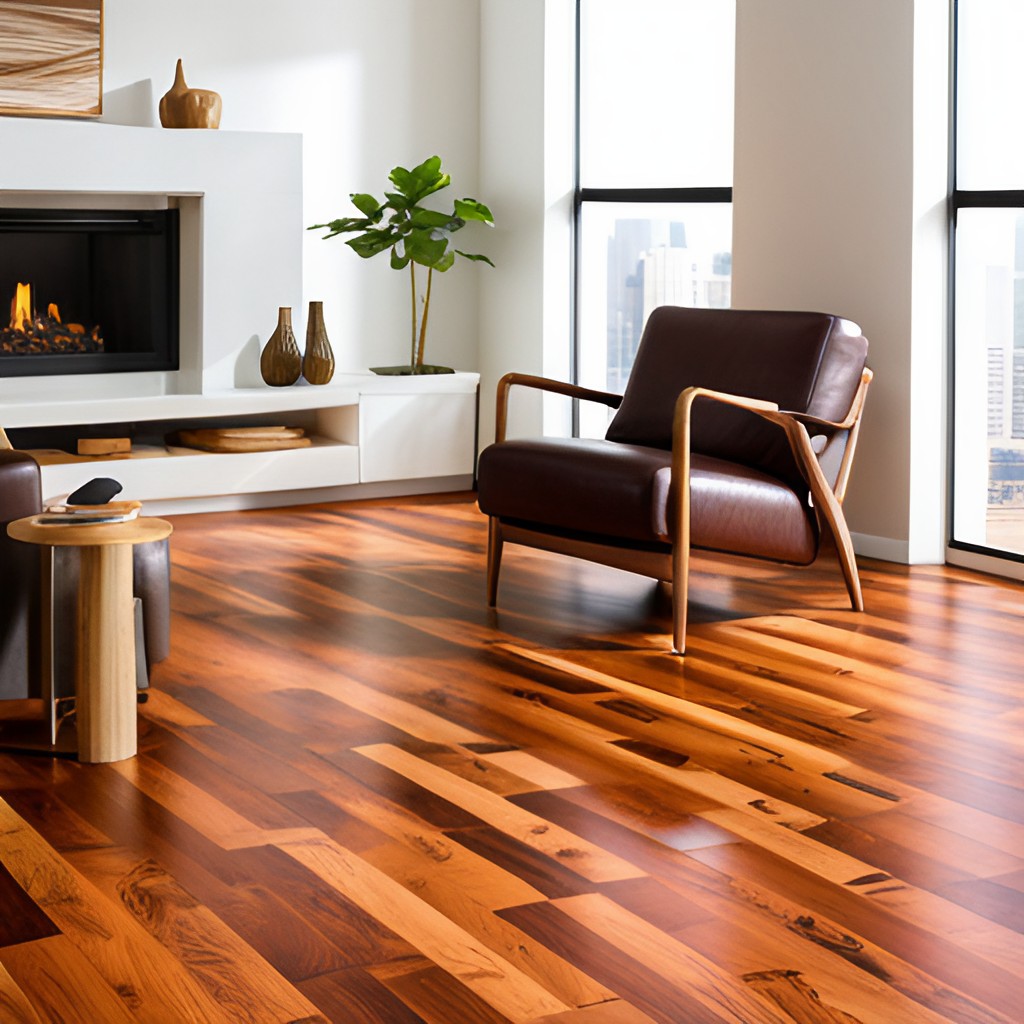Hickory wood floors are renowned for their durability, striking aesthetics, and versatility, making them a popular choice for many homeowners. However, proper care and maintenance are essential to maintain their beauty and longevity.
Maintaining hickory wood floors is critical to preserving their natural charm and structural integrity. Regular maintenance protects your investment and ensures that the wood remains resilient against daily wear and tear.
Without adequate care, hickory floors can become dull, scratched, and more susceptible to damage from moisture and dirt. Proper upkeep helps prevent long-term issues that could lead to costly repairs or premature replacement.
The benefits of proper care for hickory wood floors are manifold. Firstly, well-maintained floors enhance the aesthetic appeal of your home, adding a warm and elegant touch to any room.
Secondly, regular cleaning and preventative measures increase the lifespan of the flooring, ensuring it remains in excellent condition for decades.
Additionally, proper care can improve indoor air quality by reducing the accumulation of dust and allergens. Lastly, maintaining your hickory floors can boost your property’s value, making it an attractive feature for potential buyers if you decide to sell your home.
1. Daily Maintenance
Sweeping and Vacuuming
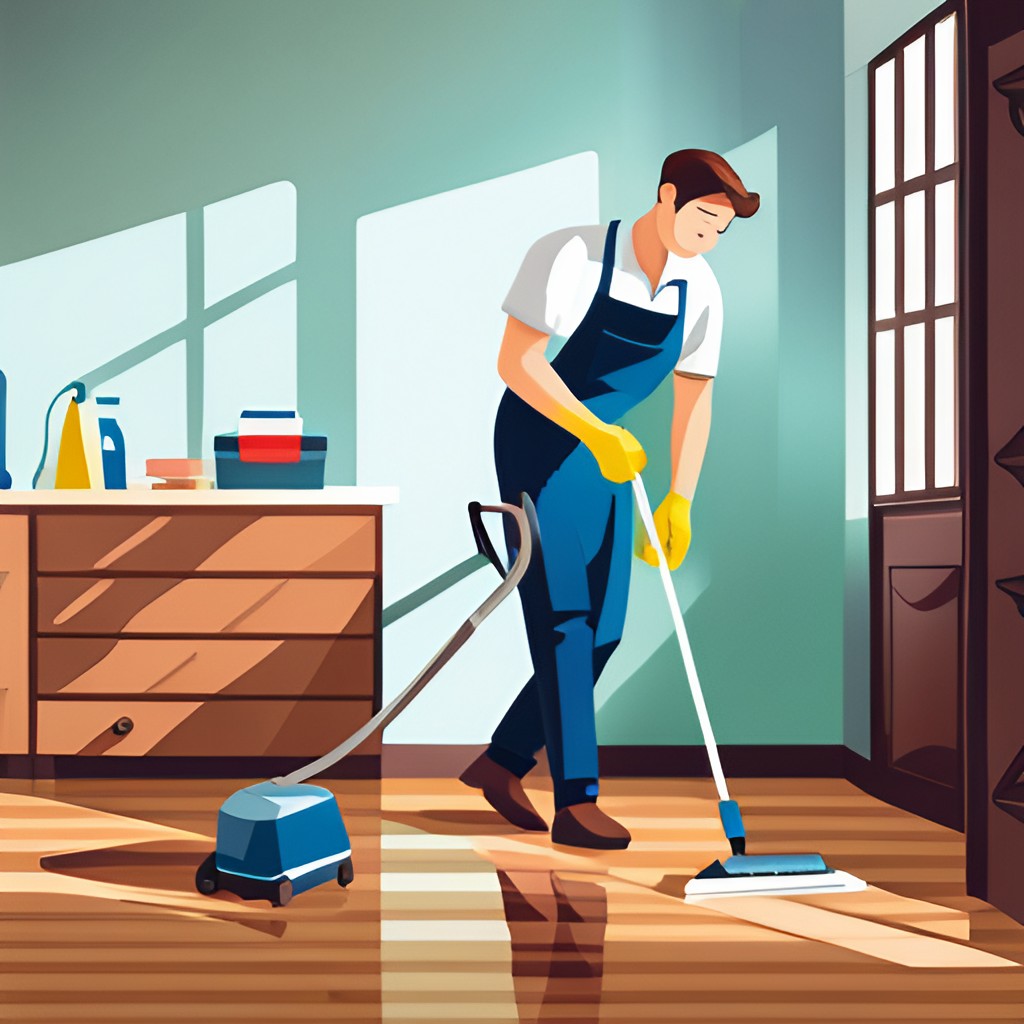
Sweeping and vacuuming are foundational elements of daily maintenance for hickory wood floors. Regular sweeping removes surface dirt, dust, and debris that can scratch the floor’s finish over time if left unattended.
Using a soft-bristle broom for sweeping is recommended to prevent any potential damage to the wood. Aim to sweep high-traffic areas at least once a day and more infrequently used spaces a few times a week.
Vacuuming is equally important and should be done using a vacuum cleaner designed specifically for hardwood floors. Such vacuums typically come with a floor-brush attachment that gently captures finer particles without scratching the wood surface.
For added protection, ensure that the vacuum wheels and brushes are free of hard or abrasive materials before use. Avoid vacuums with beater bars or rotating brushes, as these can cause dents and scratches.
For comprehensive cleaning, consider alternating between sweeping and vacuuming to ensure that all debris is effectively removed. Taking these simple yet essential steps will protect your hickory wood floors from everyday wear and tear, keeping them looking pristine and extending their lifespan.
Using Mats and Rugs
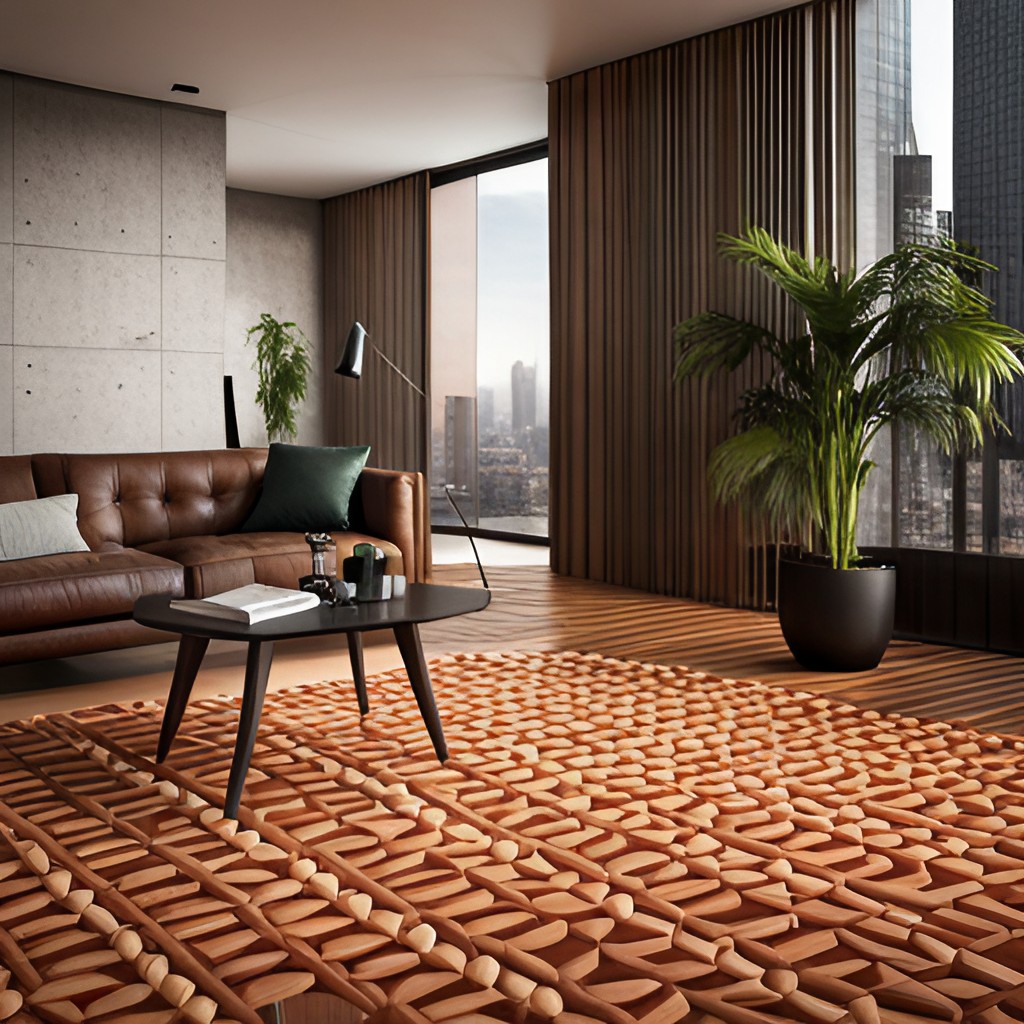
Strategically placing mats and rugs can significantly contribute to the upkeep of hickory wood floors. Mats and rugs act as a first line of defense against dirt, moisture, and debris that can damage the wood surface.
Place a durable, water-absorbent mat at each entryway to catch any grit, mud, or moisture from shoes before it can reach your floors. It’s advisable to choose mats with non-slip backings to prevent accidental slips and falls.
Rugs play a crucial role in high-traffic areas such as hallways, kitchens, and living rooms. Opt for area rugs with smooth backings that won’t scratch the floor.
Avoid rugs with rubber or latex backings, which can trap moisture and degrade the wood finish over time. Regularly clean and shake out these rugs to remove trapped dirt and dust.
Additionally, using rugs under furniture can prevent scratches and dents caused by heavy items. Place protective padding or felt cushions under the legs of tables, chairs, and other furniture to further safeguard your floors.
By incorporating mats and rugs into your daily maintenance routine, you can greatly enhance the longevity and beauty of your hickory wood floors.
2. Weekly and Monthly Care
Mopping Techniques
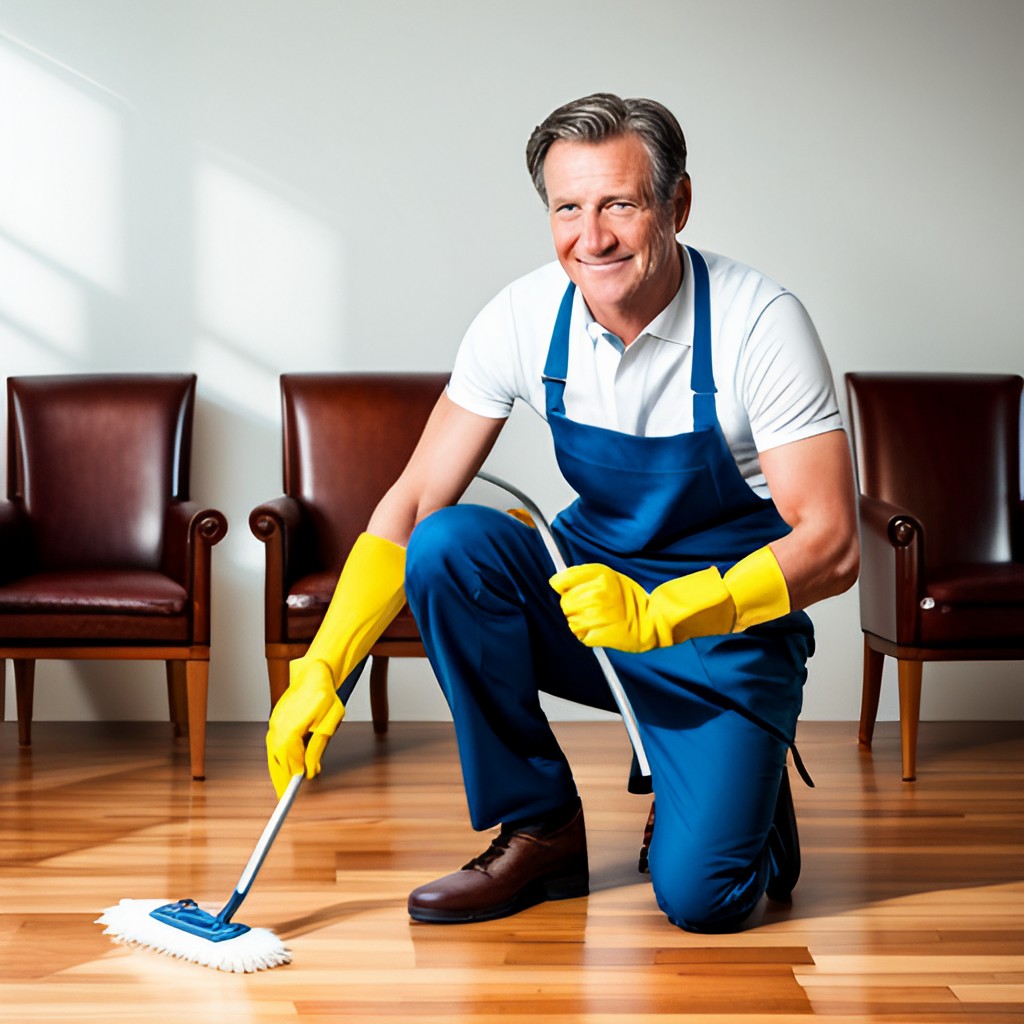
Proper mopping techniques are crucial for maintaining the beauty and durability of your hickory wood floors. To begin with, always use a damp mop rather than a soaking wet one. Excess water can seep into the wood and cause warping or staining, so it’s important to wring out the mop thoroughly before use.
Opt for a microfiber mop head, which is gentle on wood and effective in picking up dust and dirt without scratching the surface.
Start by dividing your floor into manageable sections. This approach ensures that you clean systematically and avoid missed spots.
Move the mop in the direction of the wood grain to ensure a thorough and consistent clean. This technique helps to lift dirt out from between the wood grooves and minimizes the risk of streaks.
When selecting a cleaning solution, choose a product specifically designed for wood floors. Avoid harsh chemicals such as ammonia or bleach, which can strip the finish and damage the wood.
You can also make a gentle, homemade cleaner by mixing a few drops of pH-neutral dish soap with warm water.
After mopping, it’s a good idea to immediately dry the floor with a clean, dry cloth or towel to remove any residual moisture. This extra step protects the wood from potential water damage and helps maintain its sheen.
Safe Cleaning Products
Choosing the right cleaning products for your hickory wood floors is essential to ensure their longevity and maintain their pristine finish. Selecting the wrong products can lead to damage, discoloration, or a dull appearance. Below, we detail some safe cleaning products and tips on how to use them effectively.
pH-Neutral Cleaners
Opt for pH-neutral cleaners specifically formulated for wood floors. These types of cleaners are gentle yet effective, removing dirt and grime without harming the wood or its finish.
They do not contain abrasive chemicals that can strip away the protective layer on your floors. Always follow the manufacturer’s instructions for dilution and application to ensure the best results.
Natural Cleaning Solutions
For those who prefer eco-friendly options, natural cleaning solutions can be just as effective. A simple mixture of warm water and a few drops of pH-neutral dish soap can be used to clean your floors without causing harm.
Another popular natural cleaner is a mix of one part white vinegar to ten parts water. Vinegar has natural disinfectant properties and is excellent for cutting through grime, but it’s crucial to dilute it properly to avoid damaging the wood.
Commercial Wood Floor Cleaners
There are numerous commercial wood floor cleaning products available on the market designed to be safe and effective for hardwood floors.
Look for those labeled specifically for wood or hardwood floors, as they are formulated to clean without removing the finish or causing damage. Brands like Bona, Method, and Murphy’s Oil Soap offer reliable options.
Avoid Harsh Chemicals
Steer clear of cleaners containing ammonia, bleach, or other harsh chemicals, as these can strip the finish and damage the wood. Wax-based, silicone-based, or oil-based cleaners should also be avoided, as they can leave residues that attract more dirt and make the floor slippery.
Proper Usage
When using any cleaning product, it’s vital to use it sparingly and ensure the mop is only damp, not wet. Excess moisture can lead to water damage, warping, and staining. After cleaning, always dry the floor with a clean cloth or towel to remove any leftover moisture.
3. Preventive Measures
Furniture Pads and Floor Protectors
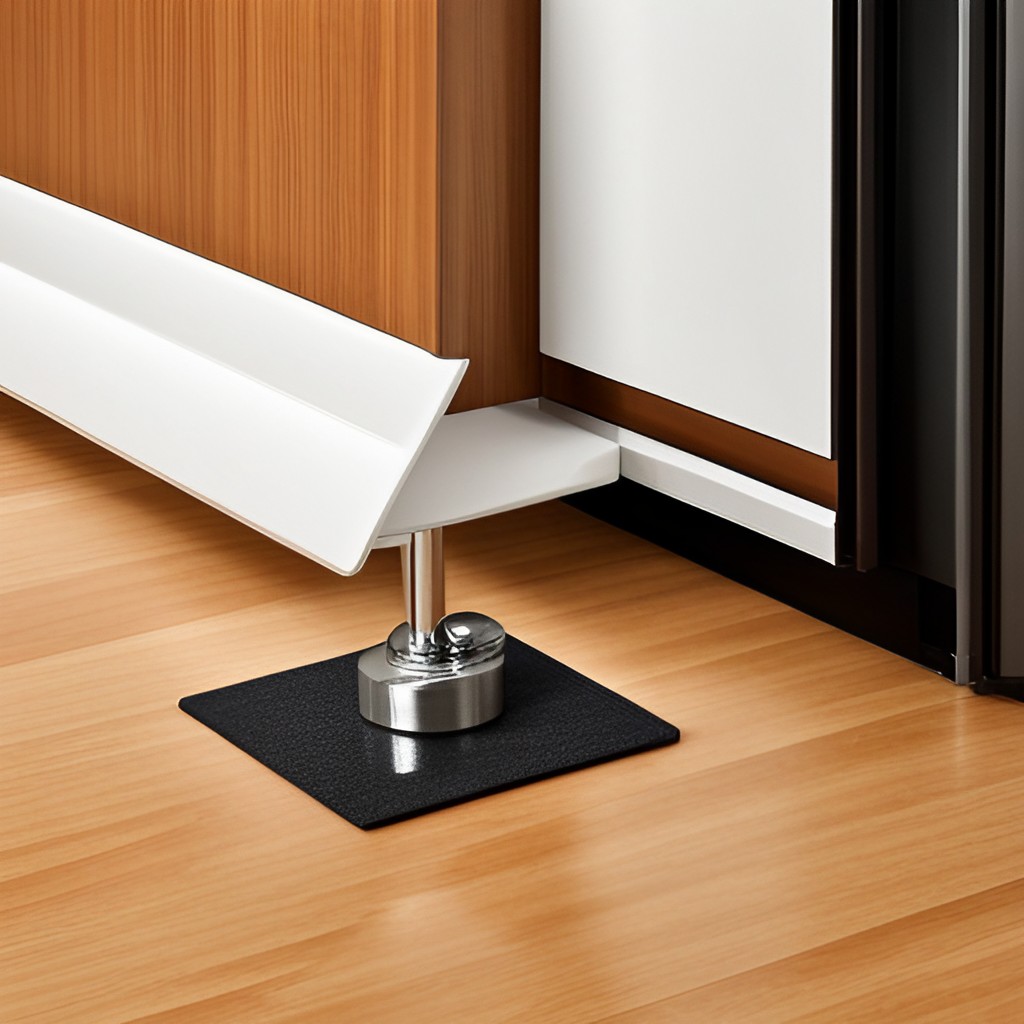
Using furniture pads and floor protectors is essential in preventing scratches and dents on your hardwood floors. Soft pads made of felt, rubber, or cork can be easily attached to the legs of chairs, tables, and other heavy furniture to create a buffer between the furniture and the floor.
Regularly checking these pads for wear and replacing them when necessary will help in maintaining the condition of your floors. Additionally, utilizing area rugs in high-traffic areas can provide an extra layer of protection.
Controlling Indoor Humidity Levels
Maintaining the right indoor humidity levels is crucial for the health of your hardwood floors. Wood is a natural material that expands and contracts with changes in humidity.
Too much moisture can cause the wood to swell, while too little humidity can lead to gaps and cracks. Aim to keep your home’s humidity level between 30% and 50% by using a humidifier in dry seasons and a dehumidifier in more humid months.
Consistent monitoring with a hygrometer can help you achieve the optimal environment for your hardwood floors.
4. Handling Spills and Stains
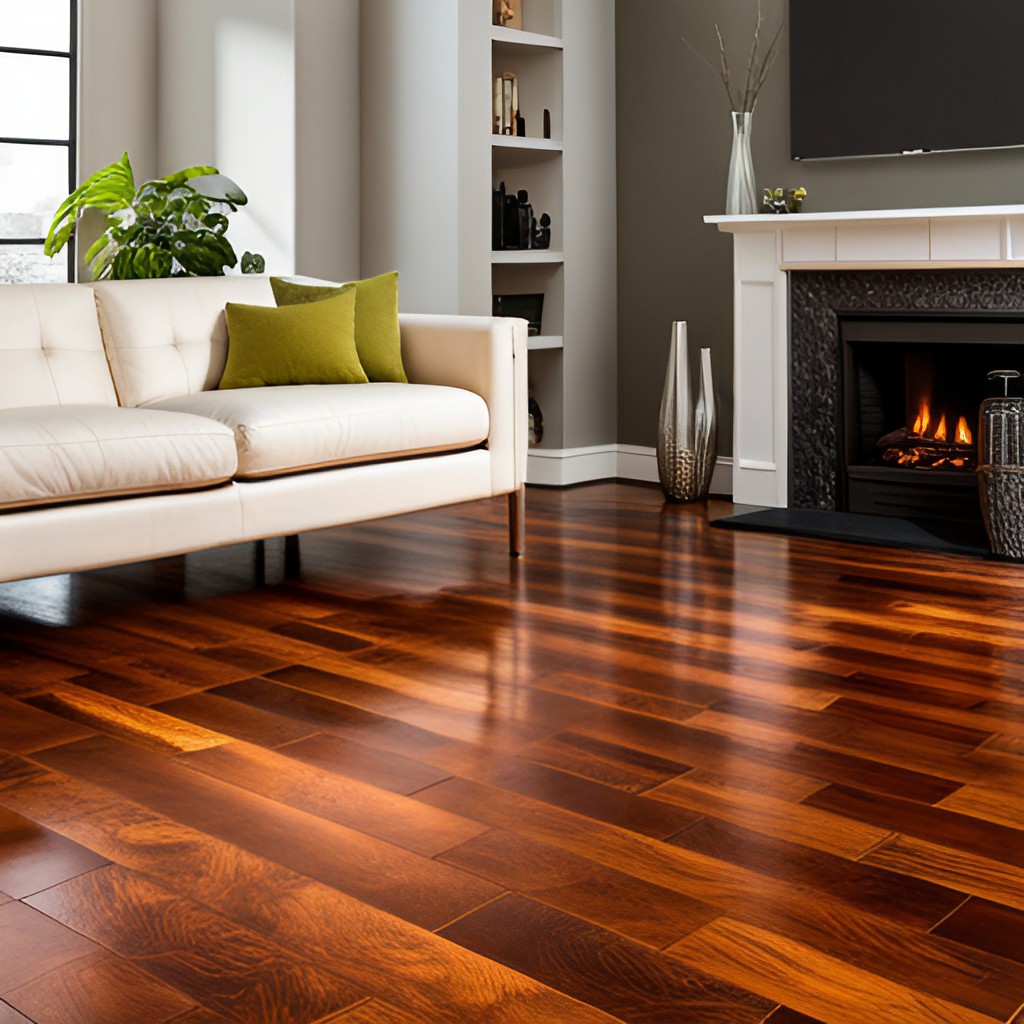
Immediate Actions to Take
When a spill occurs on your hardwood floor, immediate action is essential to prevent permanent damage. Begin by blotting the spill with a clean, dry cloth to absorb as much liquid as possible.
Avoid rubbing the spill, as this can spread the liquid and push it deeper into the wood. For sticky or stubborn messes, use a slightly damp cloth followed by a dry one to ensure all residue is removed.
If the spill is acidic, such as wine or juice, you may need to use a specific hardwood floor cleaner to neutralize the substance and prevent staining.
Always dry the area thoroughly after cleaning to avoid any residual moisture that can seep into the wood and cause further harm.
Appropriate Stain Removers
Choosing the right stain remover for your hardwood floors is essential to avoid damaging the wood. For everyday stains like dirt and grime, a pH-neutral hardwood floor cleaner is often sufficient.
For tougher stains like ink or pet messes, consider using a cleaner specifically formulated for hardwood floors. Products containing hydrogen peroxide can be effective for removing organic stains but always test a small, inconspicuous area first to ensure it won’t discolor your flooring.
For oil-based stains, mineral spirits can be used with caution. Avoid abrasive cleaners or those that contain bleach, as these can strip the finish and damage the wood. Always follow the manufacturer’s instructions and, if in doubt, consult a professional for advice.
5. Long-Term Care
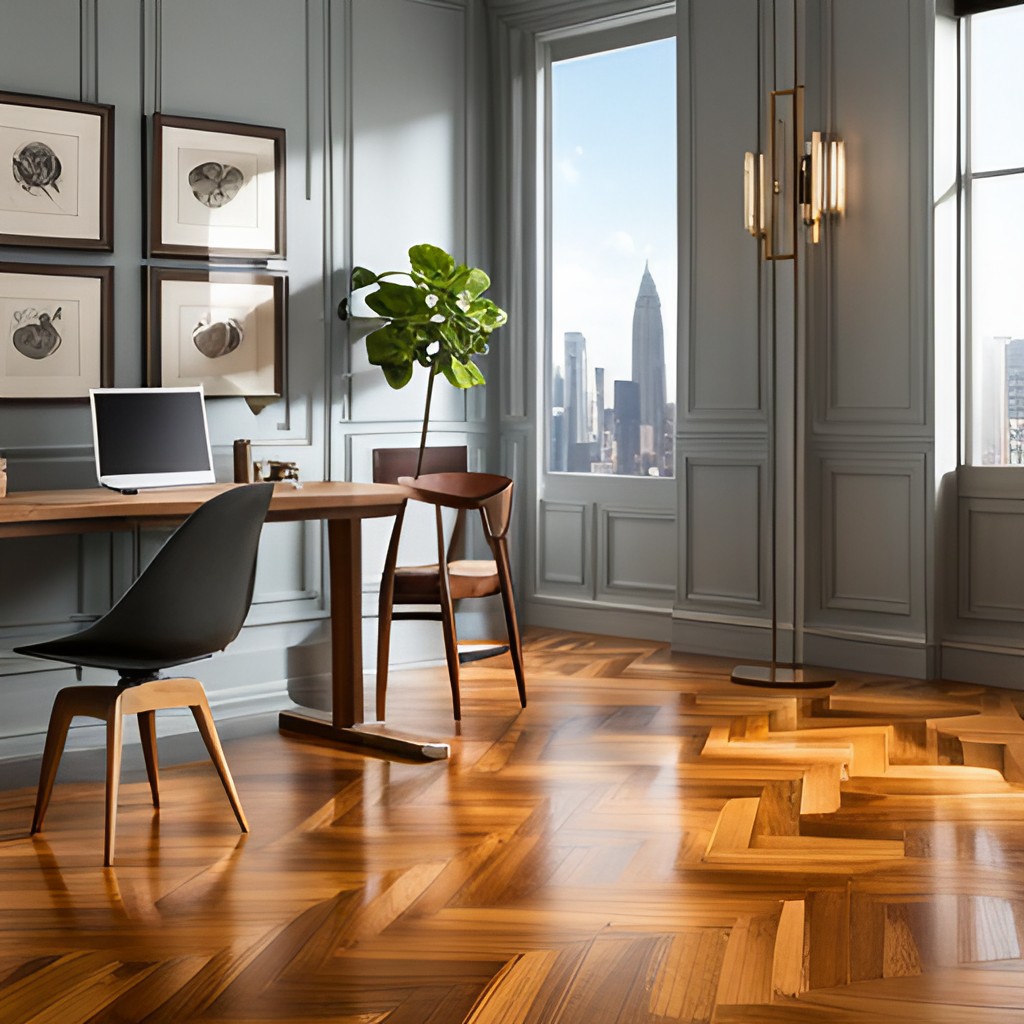
Polishing Your Hardwood Floors
Polishing hardwood floors is an effective way to maintain their shine and prolong their lifespan. Before you begin, ensure the floors are thoroughly cleaned to remove any dirt and debris that could scratch the surface during polishing. Use a high-quality hardwood floor polish that matches your floor’s finish.
Apply the polish evenly using a microfiber cloth or a mop designed for hardwood floors. Work in small sections to ensure even coverage and follow the grain of the wood.
Allow the polish to dry completely before walking on the floor. Polishing should be done periodically, typically every two to three months, to keep the floors looking their best. Regular polishing helps to fill in micro-scratches and prevents dulling.
Waxing and Refinishing Guidelines
Waxing hardwood floors can add an extra layer of protection and shine, but it is essential to know that not all floors are suitable for waxing. Floors with a urethane finish should not be waxed, as it can create a sticky residue and affect the finish. For waxable floors, ensure they are clean and dry before starting.
Apply a thin layer of high-quality floor wax using a soft cloth or applicator, following the direction of the wood grain. Buff the floor with a clean, dry cloth or a mechanical buffer to achieve a high-gloss finish.
Over time, your hardwood floors may need refinishing to restore their original beauty. Sand the floors to remove the old finish and any surface imperfections.
Apply a hardwood floor stain if desired, followed by several coats of a protective sealant such as polyurethane. Allow each coat to dry thoroughly before applying the next.
6. Common Mistakes to Avoid
Using Harsh Chemicals
One common mistake in hardwood floor care is using harsh chemicals for cleaning. Products that contain bleach, ammonia, or abrasive ingredients can strip away the floor’s finish and cause discoloration. Instead, opt for pH-neutral cleaners specifically designed for hardwood floors.
These products effectively clean without damaging the protective layer. Additionally, avoid using steam mops, as the high heat can damage the wood.
Excessive Water Exposure
Another mistake to avoid is exposing hardwood floors to excessive water. While it may be tempting to use a wet mop for cleaning, this can lead to warping, swelling, and other moisture-related issues.
Instead, use a slightly damp mop and promptly dry any spills to prevent water from seeping into the wood. Consider placing mats at entryways and in high-traffic areas to catch moisture and prevent it from reaching your floors.
Related Topics:
Conclusion
Hickory wood floors are renowned for their durability, striking aesthetics, and versatility, making them a popular choice for many homeowners. However, proper care and maintenance are essential to maintain their beauty and longevity.
Regular maintenance protects your investment and ensures that the wood remains resilient against daily wear and tear. Without adequate care, hickory floors can become dull, scratched, and more susceptible to damage from moisture and dirt.
Daily maintenance should include sweeping and vacuuming to remove surface dirt and prevent scratches. Using soft-bristle brooms and vacuum cleaners designed for hardwood floors helps to preserve the finish.
Additionally, placing mats and rugs strategically can protect high-traffic areas from dirt and moisture.
Weekly and monthly care, such as mopping with pH-neutral cleaners and promptly drying the floors, further enhances the lifespan of your hickory wood floors.
Choosing safe cleaning products and avoiding harsh chemicals is crucial in maintaining the integrity of the wood.
FAQs
How often should I sweep and vacuum my hickory wood floors?
It’s recommended to sweep or vacuum your hickory wood floors at least twice a week to remove surface dirt and prevent scratches. In high-traffic areas, daily maintenance may be necessary to keep the floors looking their best.
Can I use steam cleaners on hickory wood floors?
No, steam cleaners are not recommended for hickory wood floors. The heat and moisture from the steam can damage the wood and its finish. It’s best to use a damp mop with a pH-neutral cleaner instead to maintain your floors properly.
What should I do if I spill water on my hickory wood floors?
If you spill water on your hickory wood floors, it’s important to clean it up immediately. Use a dry or slightly damp cloth to wipe up the spill and ensure the area is thoroughly dried to prevent moisture damage.
